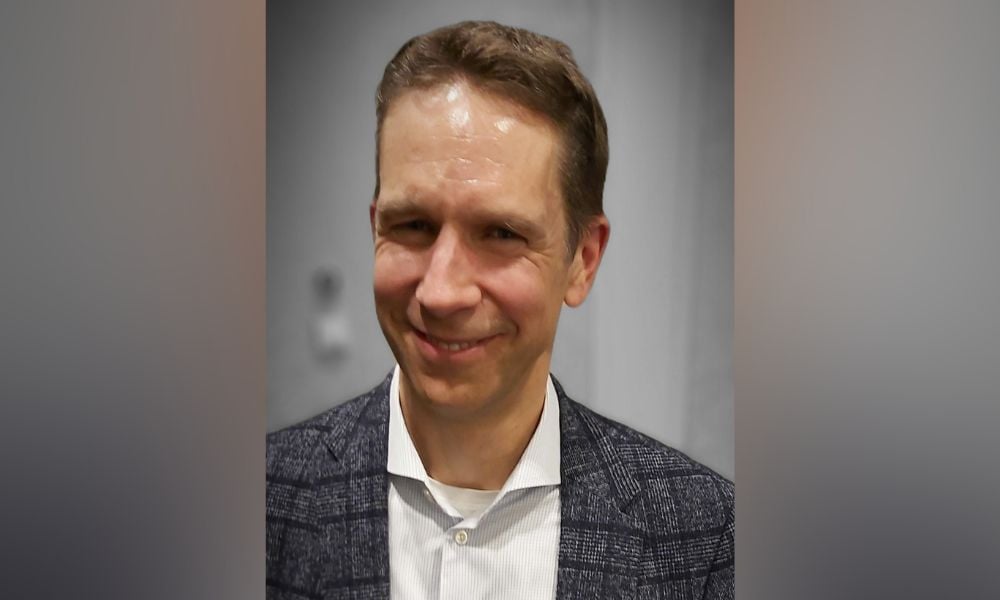How AI head took the experience of machine learning algorithms from one industry to another

From its initial days as a spam filter to now allowing medical professionals to get better information about patients, artificial intelligence has come a long way and continues to have the potential to be even more beneficial to many industries, says Tomi Poutanen, chief executive officer and co-founder, Signal 1.
Speaking at TD Global Investment Solutions’ ‘2023 Institutional Investment Symposium’ on ‘Harnessing the Power of Artificial Intelligence: Transforming Industries and Society,’ he says machine learning has the ability to solve a problem when humans can’t keep up. “Back in 1999, there was a paper from a statistics professor at Stanford that that talked about how machines provided enough data and could learn algorithms, basically, just to optimize for a particular outcome.”
Poutanen has been at the forefront of machine learning adoption in three industries, big tech, banking, and now healthcare. He says this has been helpful in that he has taken the learnings from each industry and brought it to other industries.
Back in the early days of both email and artificial intelligence (AI), Poutanen was in Silicon Valley working at Yahoo web search. At that time, “humans just couldn’t keep up with the ingenuity of spammers. It was just an endless game, so, the first place we implemented machine learning was with email for spam filtering.”
This led to using the technology for web search ranking and, again, the technology was able to achieve better results than the methodologies humans were trying. Poutanen took on the assignment to create the algorithm.
A turning point for big tech
“So, I implemented the first machine learning-based web search ranking algorithm,” he says. It turned out to be quite profound and was the turning point where “big tech really embraced machine learning for real time applications.”
In time, Poutanen came back to Toronto, ON, and started an AI company called Layer 6, which was eventually acquired by TD Bank. He then spent four years at the bank as the chief AI officer. “I came to TD at a time when there was no machine learning deployed at all, and it wasn't really clear where the machine learning applications would work. So, in the back of my mind, I was searching for that analogy. If web search ranking is the single most important algorithm in consumer tech, what was the most important analogy in banking?”
At first it wasn't obvious. But eventually he figured out it was credit underwriting – the decisions of who they lend money to. It was a hard sell due to the fact that it was a highly regulated industry and dealt with humans and financial health. “We had to make sure that it was fair, there was no bias, and that it was well represented,” he says.
“Trying to get both Canadian and US regulators on board, that was a heavy lift. We would spend way longer on the model validation and the compliance work than other model development work. But we kept chipping away at it and felt good about what we learned.
“At TD, I learned the importance of responsibly deploying AI, and involving the users in it to drive the recommended kinds of workflow changes and interventions.
“You can remove the human from the equation, that's what I learned at TD Bank. And that's the part that made us successful. We took TD from zero machine learning to be one of the leading North American banks in AI.”
Taking the experience to healthcare
After the successful implementation of AI on credit underwriting, Poutanen took the experience to healthcare.
“We know how to code medical knowledge and we know how to understand patient data. AI can complement that.”
Poutanen partnered with St. Michael’s Hospital during the pandemic where the AI applications ere developed. The platform uses the original Layer 6 technology stack that powers machine learning at TD Bank.
He co-founded Signal 1 to distribute the AI healthcare solution that was developed. “Our AI models predict changes in patients’ care needs, enabling timely and proactive decision-making. Our predictions are highly accurate and provided through a user-friendly interface, designed for convenient use by doctors and nurses.”
The Signal 1 AI solutions help accelerate discharge planning, improve staffing assignment, and, importantly, identify clinical deterioration early.



